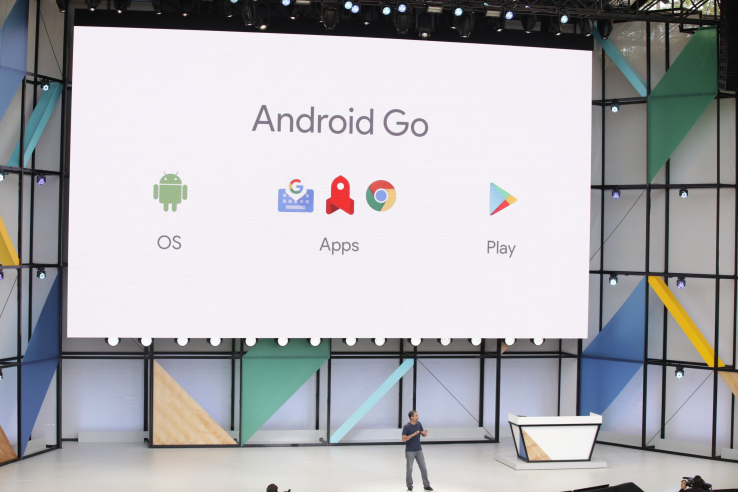

There are 2 billion Android devices currently in use around the world. Google is now thinking about the next 2 billion devices. In order to do this, Google has a new project called Android Go. It’s a lightweight version of the upcoming version of Android (Android O) with optimized apps and Play Store.
Google focused on devices with very low specs, users with limited connectivity and multilingual capabilities. And it can run on devices with less than 1GB of memory. The Play Store is going to highlight apps that can run on these cheap devices.
These apps should be less than 10MB, work well when you’re not connected to the internet and support devices with slow systems-on-a-chip and little RAM.
Sameer Samat talked about Chrome’s data saver as an essential feature to load more pages with a minimal amount of cell data. But the company doesn’t plan to stop there.
For instance, YouTube Go is going to be an optimized version of the YouTube app. There’s a new preview feature so that you can have a look at the video before even loading the video.
Once you know for sure that you want to watch this video, you can select the quality of the video even before playing the video so that it doesn’t eat up all your data allowance. And if you’re on Wi-Fi, you can even download the video and watch it later.
This feature was limited to YouTube Red subscribers before. But YouTube Red is only available in the U.S., while Android Go is going to target developing countries. And if you’re watching videos with a friend, you can even share videos between multiple Android Go devices using peer-to-peer transfers.
In the future, all version of Android are going to ship with an Android Go variant. As Android becomes more powerful, Android Go seems like a smart move to make it run on crazy cheap phones and slow networks. Google hasn’t announced hardware partner yet.

